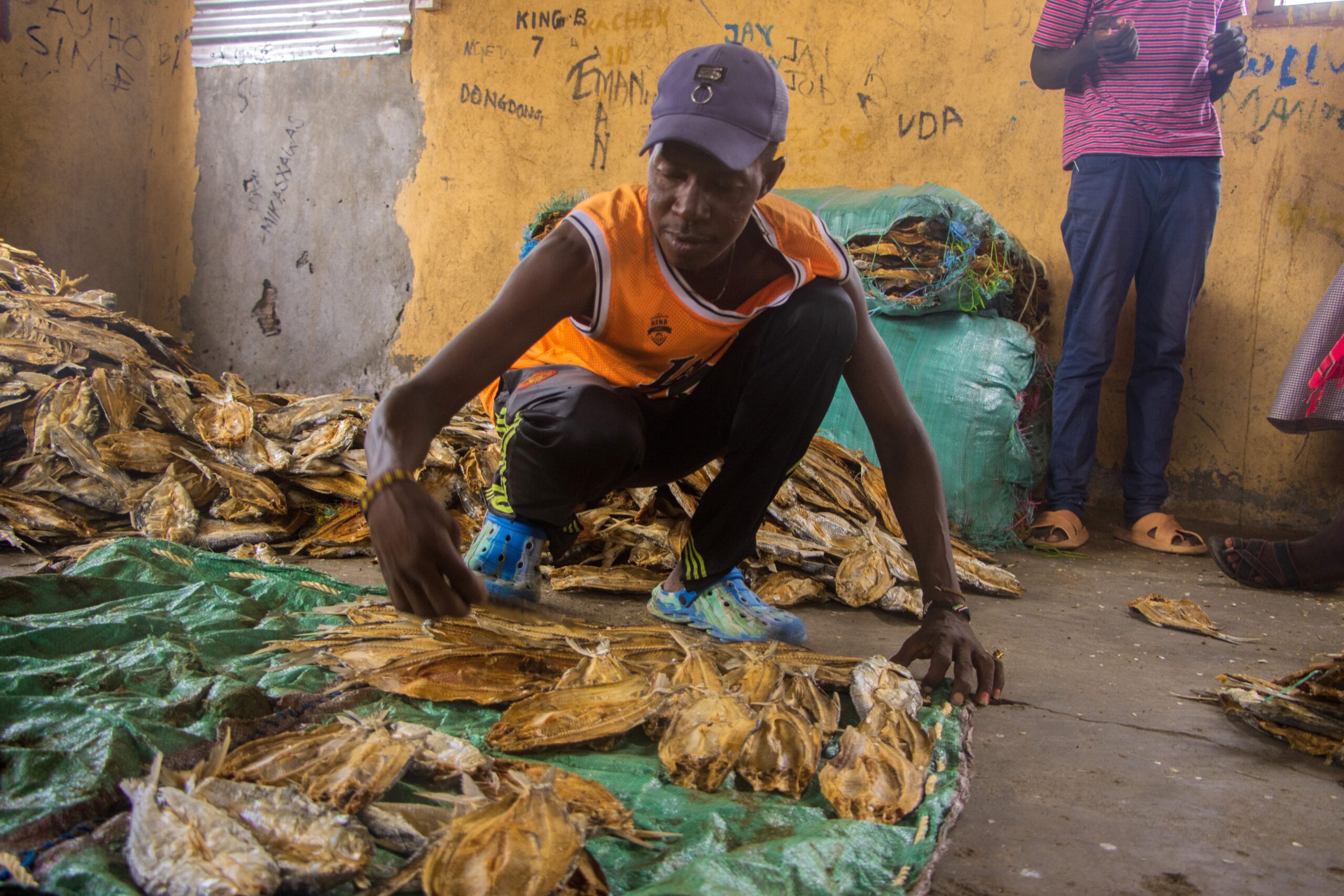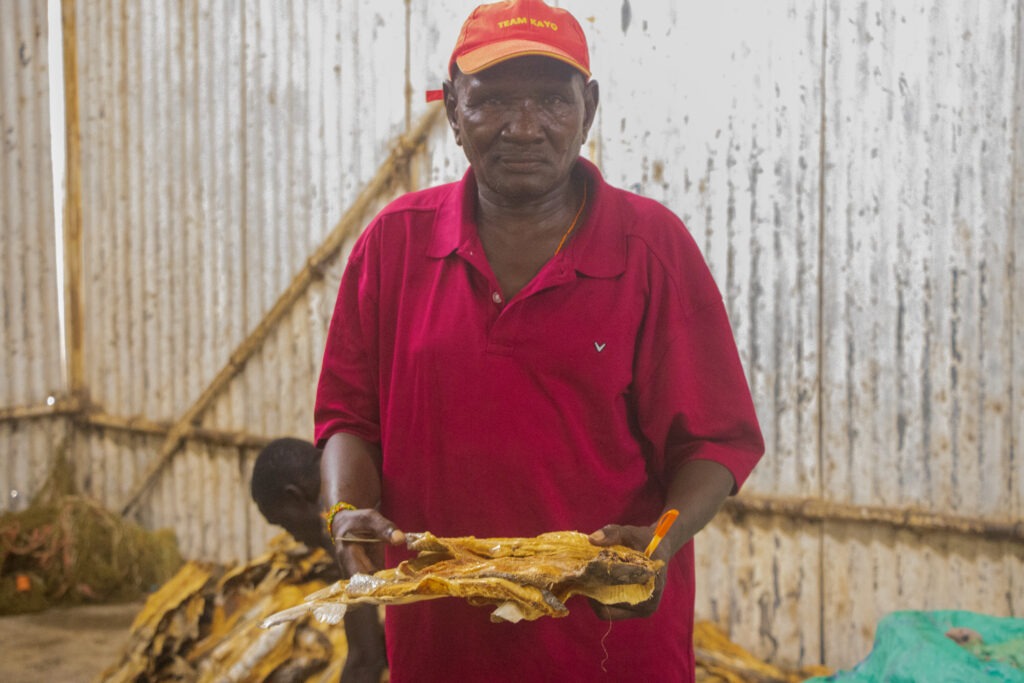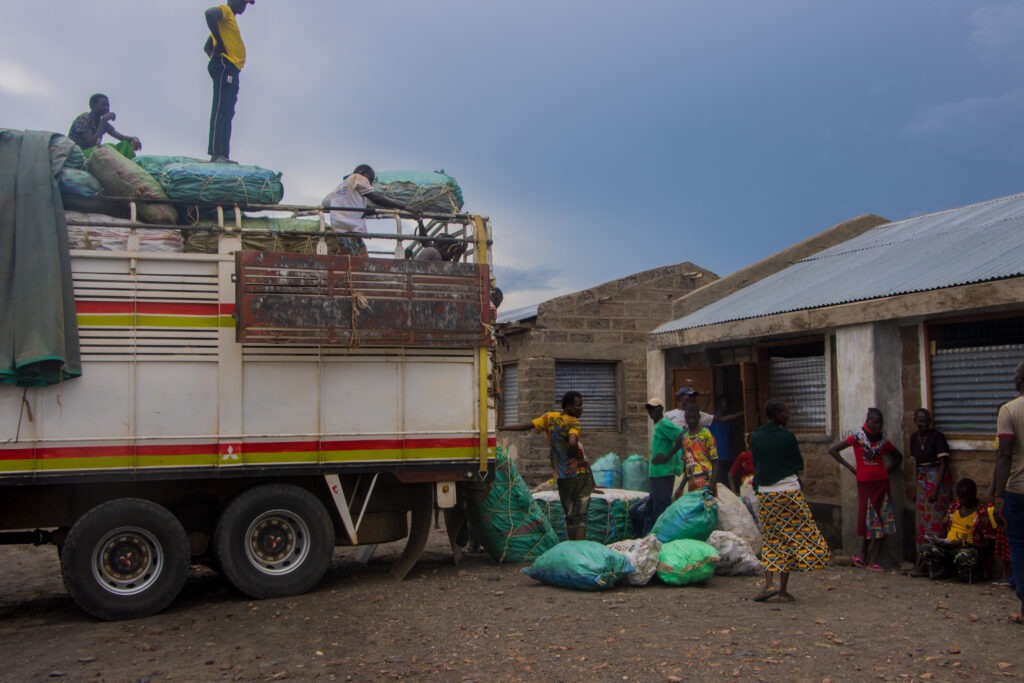
William Ebukut lives with his family of seven in Loiyangalani town located in Marsabit County on the eastern bank of Lake Turkana, the world’s largest desert lake. The lake occupies northwestern Kenya, with the biggest portion of the lake in Marsabit County.
William began fishing in the lake in 1990. According to him, many people who fished back then did so solely for household meals and not commercial purposes. But that has changed over time as more people have taken up fishing as a business venture.

William became interested in the trade as a way of boosting his family’s income. However, he had little knowledge of business management and lacked the proper equipment. For example, William used a small handmade fishing net that could only hold so many fish. This negatively affected his output, earning him less than $2 a day, which was inadequate for purchasing inputs and caring for his family’s needs. Additionally, William, like the rest of the fisherfolk, did not have a proper storage facility and depended on traditional ways of preserving fish, such as smoking, salting, and sun drying, which depreciated its value by 70 percent. Fisherfolk, on average, earned just $5 for the sale of 10 fish.
In 2021, the United States Agency for International Development (USAID), through the Feed the Future Kenya Livestock Market Systems Activity (the Activity), began supporting fisherfolk in the locality. First, the Activity worked together with the County Government of Marsabit and the community to revamp the Loiyangalani Fish Cooperative, which had 60 active members at the time. William was one of the founding members.
For effective preservation, the Activity provided the cooperative with four 420-liter deep freezers and 40 cooler boxes to transport fresh fish from the lake to the storage center, where the Activity installed a solar-powered system. The Activity also trained the fisherfolk on smart business practices, such as recordkeeping, savings, and cooperative management, including periodic member education. Additionally, the Activity supported the Loiyangalani Fish Cooperative to audit its operations and hold its first-ever annual general meeting. The Activity also organized a learning visit for the cooperative and continues to support it in digitizing its operations. For example, the cooperative now uses mobile banking, which has improved transparency and efficiency of operations.

“The cooperative transformed the lake operations here. The members would aggregate their catch and market as a team bringing in more sales.”
William Ebukut, founding member of Loiyangalani Fish Cooperative
Between 2021 and 2023, the cooperative raised its membership from 60 to 205. With deep freezers and cooler boxers, members had more to offer than dried or smoked fish. They started processing fish fillets and opened depots in Isiolo and Marsabit counties, where they employed five youths. The increased demand for fish also encouraged the cooperative to venture into new markets, such as Meru, Busia, and Kisumu counties, and to export to Uganda. From the 2,000 kilograms of fresh fish that the cooperative aggregates monthly, it sells 1,000 kilos as fillets for $5.50 per kilo and the rest as whole fish for $2.50 a piece. The cooperative’s new product (fresh fish) increased the income of each member from $5 to $15 for the sale of 10 fish.
In 2022, as a result of hard work and commitment, William secured a job as the cooperative’s manager and started earning a monthly salary. He can now meet his family’s basic needs, educate his children, and access financial loans to expand his business.
“I have been a fisherman for over 33 years with little to no progress. Today, I can fend [for] and educate my seven children and put food on my table.”
William Ebukut, founding member of Loiyangalani Fish Cooperative
Overall, the Activity is strengthening the operations of 45 cooperatives in Northern Kenya to improve household incomes and boost the local economy. The cooperatives serve as platforms for marketing livestock and livestock products and as channels for disseminating market information and financial services. The Activity also worked closely with the partner county governments to develop cooperative strategic plans and offer them tailored training in areas like Islamic banking and cooperative leadership and integrity.
Learn more about the Activity.
Learn more about our work in Kenya.








